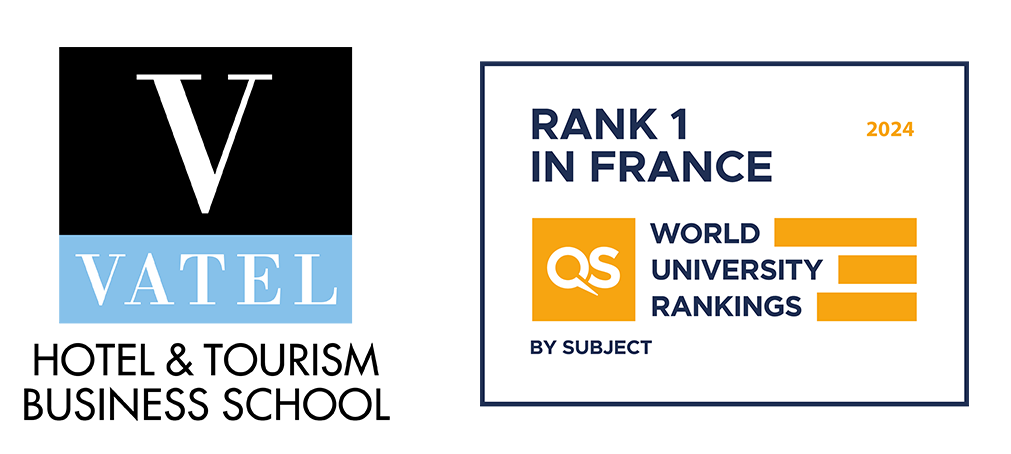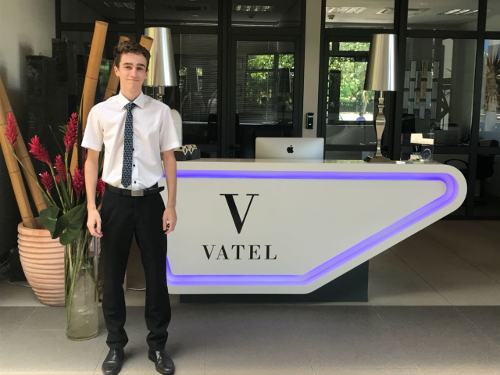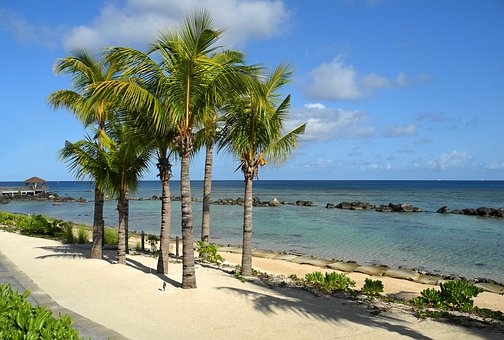Currently in his second Bachelor year at Vatel Mauritius in the framework of the Marco Polo program, William Leboeuf plunges us into the Mauritian culture with its hotel resorts.
After his first year at Vatel Bordeaux, William Leboeuf decided to do the Marco Polo program. With this program, students spend their second year in one of the 41 Vatel schools throughout the world. William decided upon Vatel Mauritius. He tells us more about his immersion and shares the specificities of the hospitality industry in this island, as well as Mauritian customs.
Why did you choose Vatel Mauritius for your Marco Polo year?
I applied for the Marco Polo program to discover a new country and its specificities. I also wanted to improve my English, and in Mauritius, English is the main language. And last but not least, it seemed interesting to me to discover the differences between Mauritius and France for hospitality services.
What are they?
There are many hotel resorts which are hotel complexes, as opposed to France. That’s why Vatel Mauritius proposes the Resort Management specialization in their MBA.
How did you notice these differences?
I noticed these differences during my two-month internship at the Pirogue & Spa Hotel. Compared with France, hotels in Mauritius all have a lot of openings outside because of the tropical climate and heat.In France, there’s a door and then a lobby. It’s not the same approach. Also, the resorts are huge with many structures for guests such as golf courses, pools, fitness rooms, saunas and spas.
What department did you work in in your internship?
I worked both at the front desk and in housekeeping. Housekeeping includes personnel who are in charge of completely cleaning the room when guests have left.
And what do France and Mauritius have in common in these fields?
There are few differences between France and Mauritius for procedures in both of these departments. At the front desk, there’s always the same check-in and check-out procedure. Receptionists answer the questions guests have. Rooms are all cleaned every day.
What contrasts are there between these two countries?
In the lobby, a person will play the Ravanne, which is a typical musical instrument in Mauritius, to greet guests who have come a long way. Receptionists greet guests on poufs, rather than behind the front desk, like in France. As for housekeeping, there are coordinators who are the liaison between supervisors and cleaning ladies. As far as I know, we don’t have this function in France.
What do you like about the Mauritian culture?
I appreciate their sense of hospitality. They celebrate holidays that we usually don’t, such as Diwali, the Hindu festival of lights. Their families are very important for them and Mauritian cooking is delicious.
What is your favorite Mauritian dish?
I really like “mines,” which are Mauritian fried noodles. They are Chinese noodles with soy sauce accompanied by meat, such as chicken. They’re very sweet.
A few Mauritian words used in the hospitality industry?
They never speak Creole in front of guests, only between themselves. They pronounce a “j” like a “z,” for instance “zet ski” instead of “jet ski.” They often say “corec” in the sense of OK, or correct. And on the phone, at the end right before they hang up, they say “aller, aller, aller…”
Would you like to work in Mauritius in the future?
I don’t know yet. I like to travel and discover new things. I think I’d like to work in other countries before thinking of coming back to Mauritius. I liked this island a lot.


